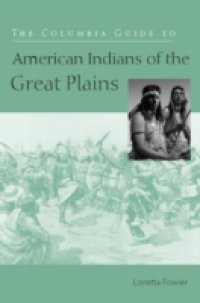Plains Indians have long occupied a special place in the American imagination. Both the historical reality of such evocative figures and events as Crazy Horse, Sitting Bull, Sacajewea, and the Battle of Little Bighorn and the lived reality of Native Americans today are often confused and conflated with popular representations of Indians in movies, paintings, novels, and on television. Ingrained stereotypes and cultural misconceptions born of late nineteenth and early twentiethcentury images of the romantic nomad and the marauding savage have been surprisingly tenacious, obscuring the extraordinary cultural and linguistic diversity of the dozens of tribes and nations who have peopled the Great Plains. Here in one volume is an indispensable guide to the extensive ethnohistorical research that, in recent decades, has recovered the varied and often unexpected history of Comanche, Cheyenne, Osage, and Sioux Indians, to name only a few of the tribal groups included. From the earliest archaeological evidence to the current experience of Indians living on and off reservations, a wealth of information is presented in a clear and accessible way.The history of the Plains Indians has been a dynamic one of continuous change and adaptation as groups split and recombined to form new social orders and cultural traditions. Contact with Europeans and the introduction of trade in horses, slaves, furs, and guns dramatically altered native societies internally and influenced relations between different groups. In the face of pressures resulting from America's westward expansion throughout the nineteenth and twentieth centuriesthe extinction of the bison, the imposition of reservation life, and the assimilationist policies of the U.S. federal governmentthe native peoples of the Great Plains have struggled to preserve their distinct cultures and reorient themselves to a new world on their own terms.The Columbia Guide to American Indians of the Great Plains is divided into four parts. Part I presents an overview of the cultures and histories of Plains Indian people and surveys the key scholarly questions and debates that shape this field. Part II serves as an encyclopedia, alphabetically listing important individuals and places of significant cultural or historic meaning. Part III is a chronology of the major events in the history of American Indians in the Plains. The expertly selected resources guide in Part IV includes annotated bibliographies, museum and tribal Internet sites, and films that can be easily accessed by those wishing to learn more.The third in a six-volume reference series, The Columbia Guides to American Indian History and Culture, The Columbia Guide to American Indians of the Great Plains is an invaluable resource for students, teachers, and researchers.

